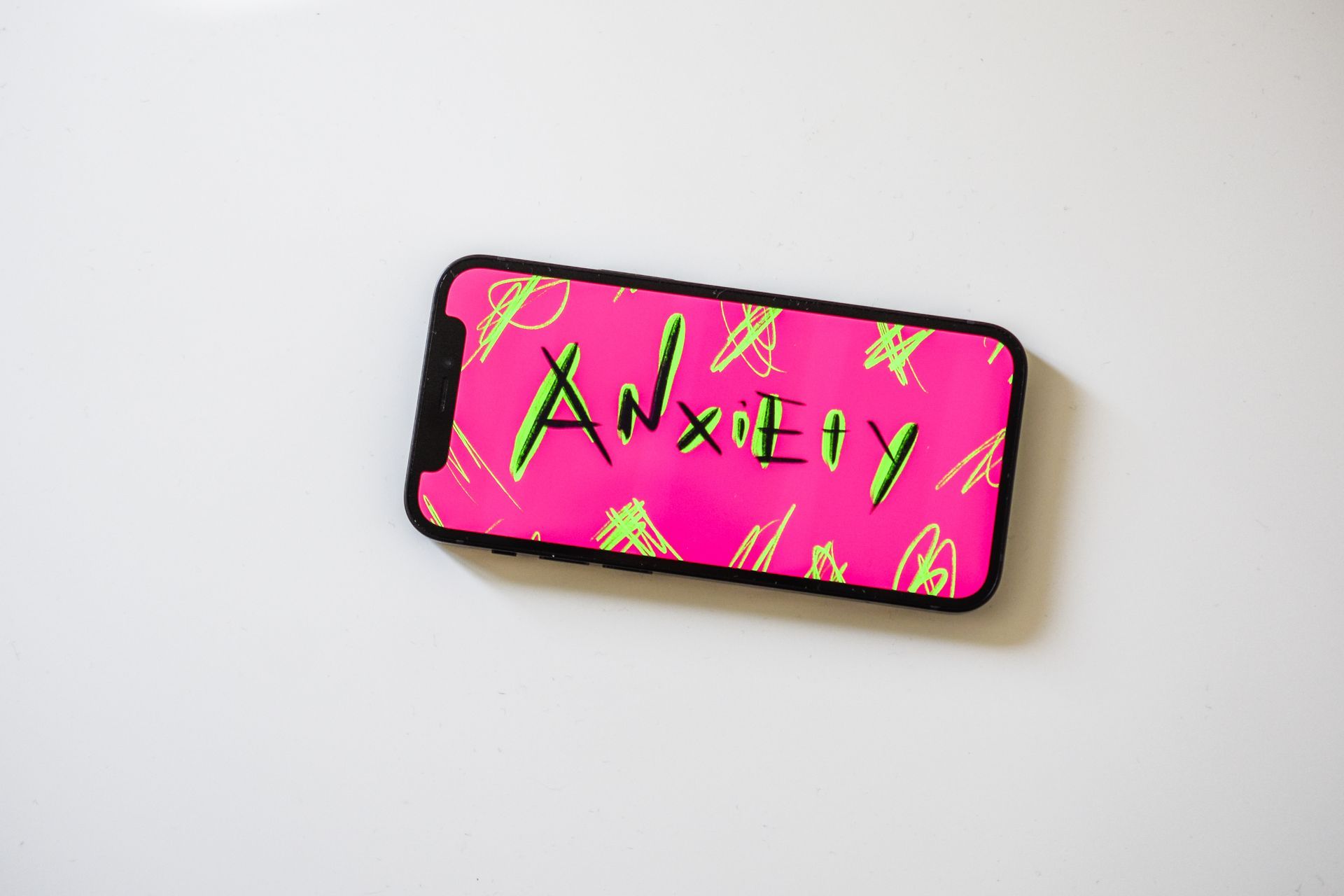A lot of that inner chat, the “behind the scenes” of our anxiety, happens on autopilot, creating that downward spiral that leaves us feeling stunned and so frustrated. All the “what ifs” that rapid fire in our mind set the stage for our feelings of worry and that uncomfortable feeling of overwhelm.
5 strategies to spiral up and out of the anxiety rabbit hole
- Have you ever gone down the anxiety rabbit hole, your brain jumping from one anxious thought to the next?
- Do you ever feel like you’re trapped in an out-of-control anxiety spiral?
- Do you find that anxiety sneaks in at bedtime and spirals down, getting in the way of your precious and much needed sleep?
- Is the anxiety so overwhelming that it sometimes ends up in a full-blown panic attack that leaves you drained and even more worried?
Maybe you’ve managed your anxiety fairly well for many years, but recently it feels like anxiety has jumped in the driver’s seat and is bossing you around, leaving you feeling overwhelmed and exhausted, and no amount of meditation has kept it at bay.
If you can relate to any of the above, and your anxiety often feels out of control, know that you’re not alone. Anxiety is overwhelming, and climbing out of that “anxiety hole” can feel physically and mentally draining.
Behind the scenes of our anxiety – When unhelpful thoughts are set on autopilot
While going down the anxiety rabbit hole feels like it happens in the blink of an eye, what often gets us to this place of overwhelm is a series of (somewhat) rapidly occurring little events that contribute to making your anxiety worse. For instance, the way we interpret a stressful situation, and our thoughts about that situation, can push us in that downward spiral.
What we see:
We open a work email, next thing we know, we feel completely overwhelmed and unable to focus or concentrate on anything.
Meanwhile, behind the scenes (aka, in your mind), it can look like:
“Ugh, I just received that email about yet another thing that I have to add to my to-do list” … “I really didn’t need that”… “I don’t think I can manage to get this all done”… “This is too much, I won’t be able to do it”…”What if I get behind at work”…” What if my boss is disappointed”…”I might not get that raise I’ve worked so hard for”… “What if I lose my job if I can’t step up my game”…
And on and on goes the brain on anxiety, dragging you to the worst-case scenario! It can also look like this:
Our stomach hurts, the next minute we are experiencing a full-on panic attack and worrying about something serious going on with our health. Meanwhile, this is what happened behind the scenes:
“Oh, my stomach feels funny”…”I’m wondering what’s wrong”…”I hope it’s nothing bad”…”What if my IBS is flaring up again”…”What if the medication stopped working”…”What will I do”…”I’m going to feel miserable again”…”I don’t be able to go on that trip”…”I will be such a disappointment to my family”… “I will be out of commission for another few months”…”I can’t deal with this again”…
Sounds familiar? One self-defeating though piling up on top of the previous one in a seemingly endless cycle!
What happens in our body (aka, our breathing gone wrong) can also contribute to anxiety
When our anxious mind kicks in, our body responds to the call. When we feel anxious, our body can respond by triggering the “fight-or-flight” system, the body’s built-in system that gets us ready to react to a threat. Interestingly, our brain can’t always make the difference between a tiger running full speed toward us or anxious thoughts on repeat in our brain. Both are deemed threats, and cause the fight-of-flight response to be activated.
Hyperventilation is one of the ways our body responds under stress. Have you ever noticed that your breathing becomes shallower when you’re anxious? Hyperventilation, or over-breathing, can in turn cause more physiological symptoms (e.g., dizziness, lightheadedness, shortness of breath), which, although they are not harmful, can be distressing and further add to your anxiety.
In short, unhelpful thoughts can cause physiological symptoms, and vice versa, in a dance that makes up spin and feel overwhelmed and dizzy with worry.
How do we stop the anxiety from spiraling down?
As much as anxiety makes you feel out of control, there are a few steps you can take to feel more in control of what is happening in the moment. The first one is to step out of anxious automatic pilot and become more aware of the cycle of anxiety. As you step out of automatic pilot, you can start taking small, intentional steps away from the anxiety, and begin spiraling up! As important as this step is, building the awareness of our thoughts and behaviors can prove a bit challenging at first, and asking for support from an anxiety therapist can help. Cognitive Behavioral Therapy (CBT) can be a good option to that end.
Below are five bite-size strategies that can help you get started with stepping out of the anxious cycle and spiraling up
1. Become familiar with your anxiety triggers and early signs that anxiety is rearing up its head.
The more you are aware of early signs that your anxiety is start to build, the more likely you will be able to interrupt that vicious cycle. You may noticed for instance that your breathing is becoming more labored (frequent sighing and yawning may also indicate that you are hyperventilating). Or you might catch yourself worrying about a possible worst-case scenario for something that hasn’t happened. This is your chance to pause for a moment and ask yourself: “What is one thing I can do right now to help take the anxiety down a notch?”
2. Practice deep breathing!
Deep breathing, also called diaphragmatic breathing or belly breathing, is the one way you can activate the parasympathetic nervous system, the part of your nervous system that is in charge of the relaxation response. Whether you practice breathing on your own or use an app, practicing deep breathing for a few moments can start bringing in some relief from anxiety.
3. Ground yourself.
Anxiety will often take you on a journey to the future, making you worry about things that haven’t happened and making you believe that thinking about all the possible “what ifs” will provide a sense of relief or calm (breaking news, it doesn’t!) Grounding techniques can help you reconnect with your environment and bring you back in the here-and-now, and away from that downward spiral of worst-case scenarios. Grounding can look like noticing 5 sounds in your immediate environment, planting your feet in the ground and noticing the contact they make with the floor, or even counting your breaths. More here on grounding techniques.
4. Kick your “buts”!
Remind yourself that you can experience (some) anxiety AND still be able to enjoy the moment or have a good time. So instead of systematically thinking “I was able to get out of the house and spend time with friends, BUT I felt so anxious”, practice reframing to “I felt anxious AND I was able to get out of the house and spend time with friends.” And see if that may make you feel any differently.
5. Compassionate self-talk.
Be kind to yourself when you struggle with anxiety. Talk to yourself the way you would a very dear friend. What word of comfort would you give them in a moment of anxiety?
Hi, I’m a Miami psychologist and I offer Cognitive Behavioral Therapy (CBT) for anxiety!
Anxiety relief is one of the number one reasons people seek help from a psychologist. Especially since the beginning of the pandemic, many people who previously were able to keep anxiety at bay have found themselves overwhelmed and needing more support. If that’s you, reach out for help and schedule a free 15-minute phone consultation to learn how counseling sessions using Cognitive Behavioral Therapy might help you find some relief from your anxiety.






